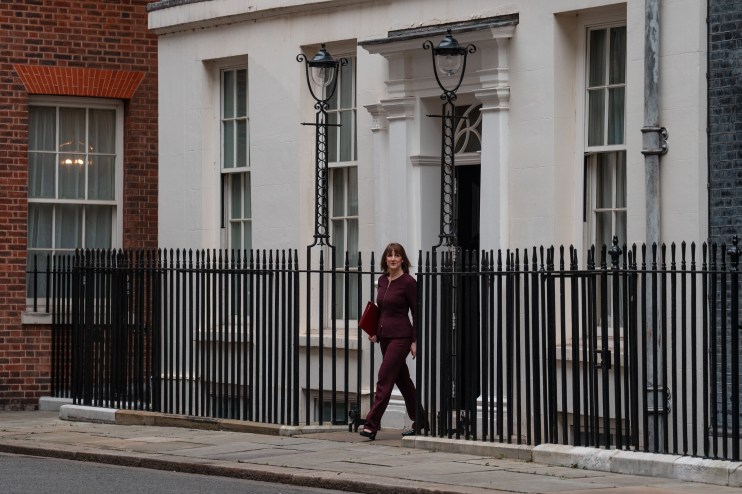| Updated:

Consumer confidence has become a casual predictor of GDP. Labour can use this to their advantage, writes JL Partners senior data scientist Callum Hunter
Recent JL Partners polling reveals a troubling economic outlook: 43 per cent of voters expect sharp cost of living increases this year, with more than a quarter believing the economy will significantly worsen. On average, voters expect inflation to exceed seven per cent for 2025, despite official forecasts being lower.
But the government is unlikely to benefit from actual inflation rates being lower than public expectations. These public perceptions are shaped by everyday shopping experiences, where prices have been steadily increasing over the past two years. The disconnect between official statistics and lived experience creates a significant communication challenge for the government.
The bad news keeps coming: consumer confidence is rapidly declining. After standing at -13 post-election, GfK’s consumer confidence index fell to -20 by February 2025 and is projected to reach -27 by September – the lowest since October 2023. This decline threatens both economic growth and political stability, as Labour’s electoral coalition fragments under economic pressure.
This isn’t just bad news for households; it is a serious economic risk. A lack of consumer confidence means weaker growth and less fiscal headroom for the government, as the Spring Statement revealed.
Raise consumer confidence and GDP will follow
However, this challenge presents an opportunity. Our economic analysis suggests consumer confidence has become a causal predictor of UK GDP, typically seen in post-crisis recoveries. After the 2008 crash, confidence predicted GDP growth for five years, and a similar pattern has emerged post-pandemic.
Based on current confidence levels, JL Partners forecasts 1.2 per cent GDP growth for 2025, matching Goldman Sachs’ November 2024 prediction and slightly exceeding the OBR’s latest forecast. If the government can boost consumer confidence, GDP could increase by an additional 0.4 percentage points, adding £10.2bn to the economy annually. In an optimistic scenario, growth could reach 2.2 per cent, delivering an extra £26bn.
This isn’t merely economic but crucial for Labour’s political survival. Post-October Budget polling showed two-thirds of voters would approve of Labour’s record if average wages increased. However, improving consumer confidence presents significant challenges.
February research identifies the weekly food shop and energy bills – not housing or wages – as the primary drivers of cost-of-living concerns. Changing public perception on these issues could boost confidence, but messaging alone is insufficient, as demonstrated by the US election. The government must take visible action by investing in infrastructure, removing growth barriers and delivering tangible results.
The public needs to feel real benefits
This reality creates a complex political-economic feedback loop: economic perceptions drive voting behavior, which influences government policy, which in turn affects economic outcomes. Breaking into this cycle with effective interventions is essential for both economic recovery and political stability. The challenge is magnified by the fragmented media landscape, where government messaging competes with numerous other narratives about economic conditions.
Labour should explicitly connect every clean energy investment to reduced consumer bills and emphasize how breakfast clubs lower food costs for struggling families. Research shows that over half of business leaders believe Heathrow’s third runway will increase business investment, while 48 per cent feel Reeves’s “growth budget” will boost business confidence. These announcements influence both businesses and the public.
For Labour, stronger economic growth depends not just on interest rates or fiscal policy, but on convincing people the worst is over and that reforms will help them. Failure to win this argument will hamper political stability and economic recovery.
Labour’s strategy must operate on multiple levels simultaneously. Short-term interventions that provide immediate relief can build credibility for longer-term reforms. Successful communication requires translating complex policies into tangible benefits. Additionally, the government should leverage local success stories and community-level improvements to reinforce national messaging.
The coming months represent a critical window for establishing economic credibility. If consumer confidence continues to decline throughout 2025, reversing the trend will become increasingly difficult. The government must prioritise policies that deliver benefits before the next budget.
Callum Hunter is a senior data scientist at polling firm JL Partners



